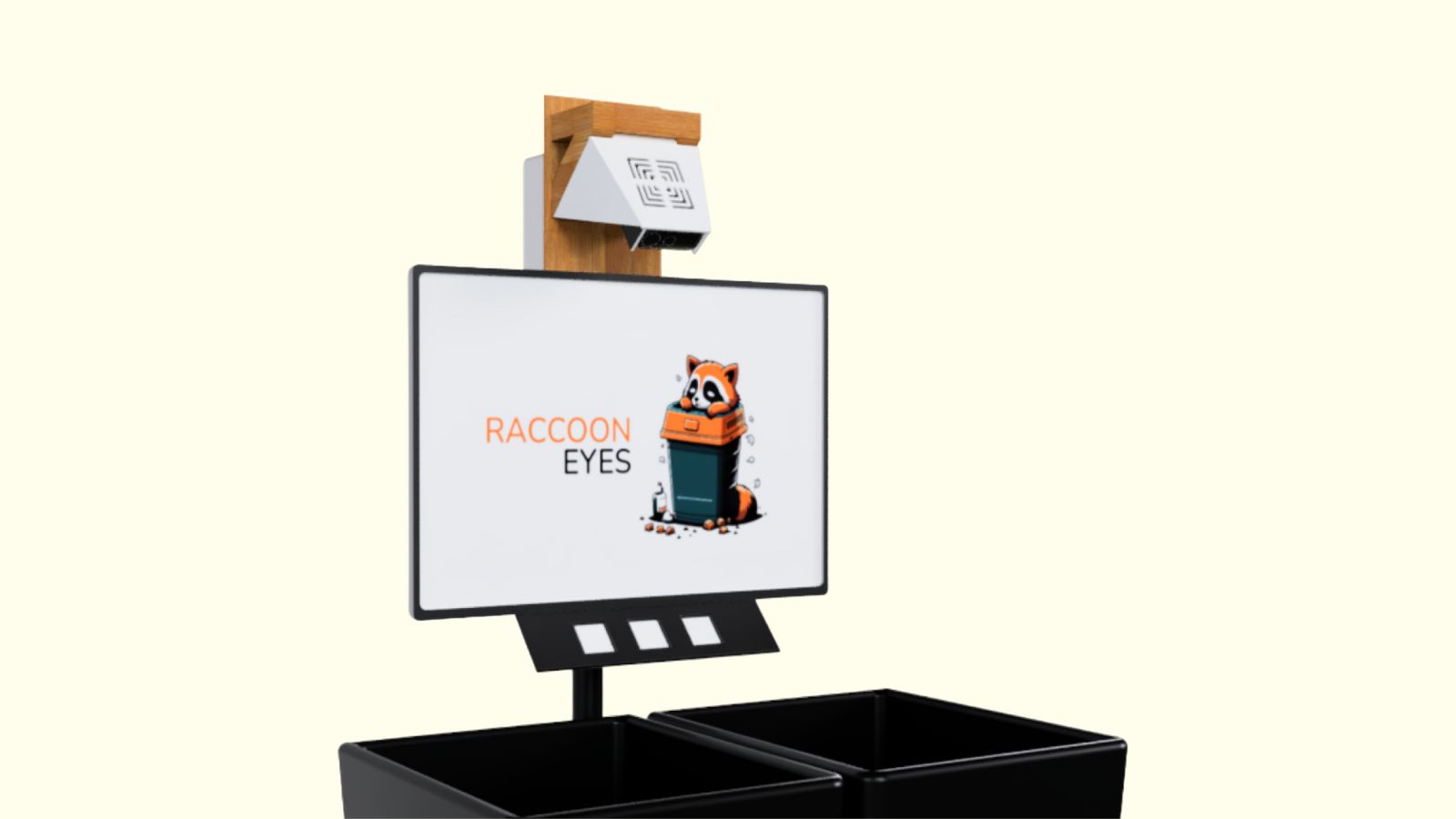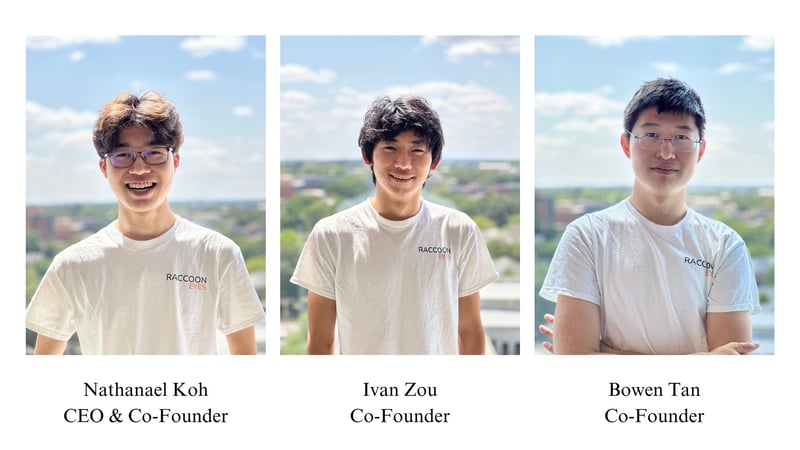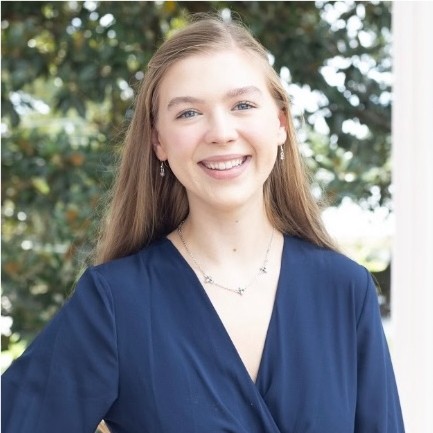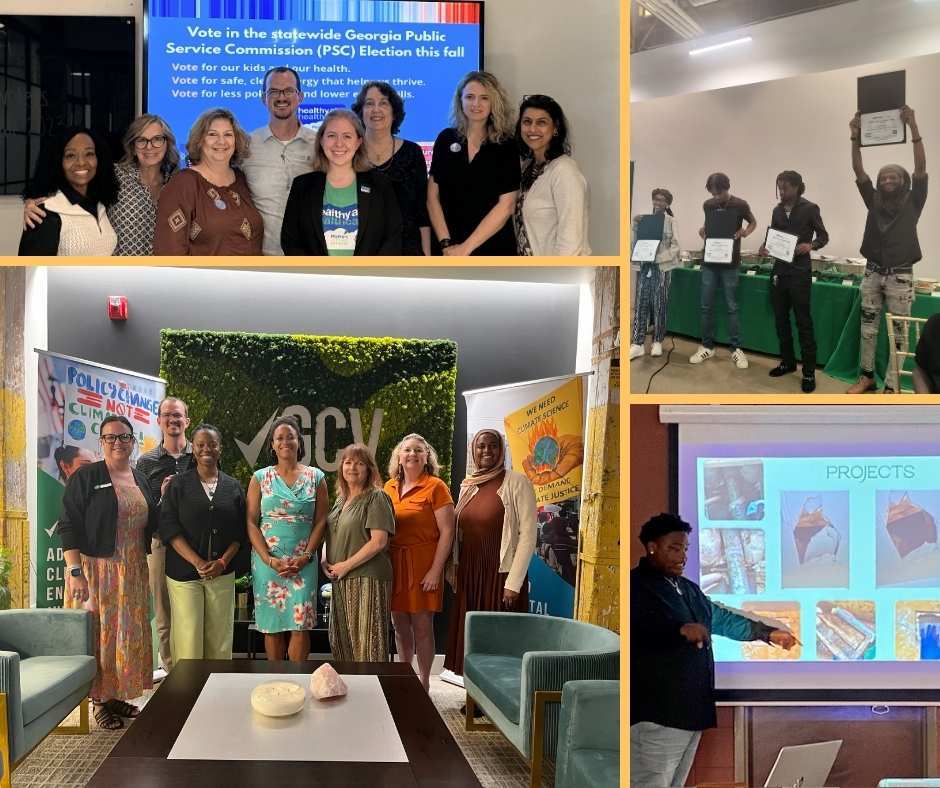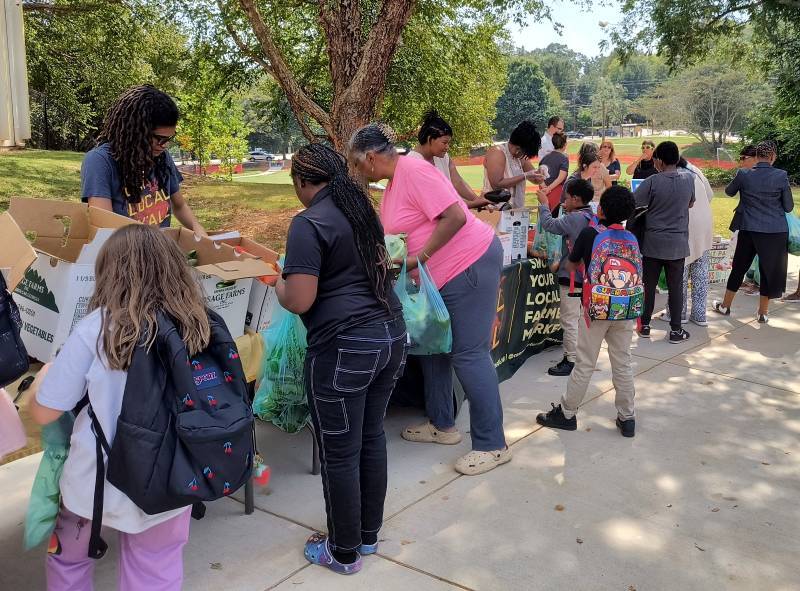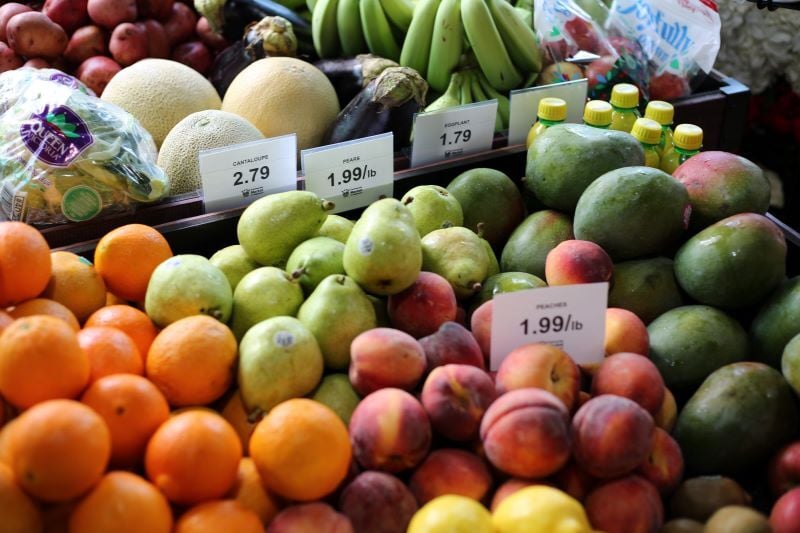Food waste is a challenging climate issue that we can address on Georgia farms and at homes, businesses, and industries across our state. It's also an issue at Georgia colleges and universities.
Every year, 14 million students across 3,000 universities in the United States waste more than 3.6 million tons of food, producing an estimated 4.86 million tons of carbon emissions.
How do we tackle this problem?
Keeping an Eye on Food Waste at Georgia Tech
“At Georgia Tech, and other universities, we believe that the solution for food waste can be found at the intersection between students and kitchens,” says computer engineering student and food waste technology innovator Nathanael Koh.
After breakfast one morning, Nathanael Koh, Ivan Zou, and Bowen Tan watched as students threw out platter after platter of unwanted food. Why was so much food waste happening on their campus? And what could be done to prevent it?
“We noticed a lack of communication and feedback between students, chefs, and the food services staff. No one was looking at the dining experience with an eye to improving food management and minimizing waste,” says Koh. That was the moment that Koh, Zou, and Tan were inspired to design Raccoon Eyes.
Raccoon Eyes: A High-Tech Solution to the Problem of Food Waste
Raccoon Eyes is the world’s first device to equip trash cans with cameras and language processing technology, providing dining operations with unprecedented feedback from patrons within seconds.
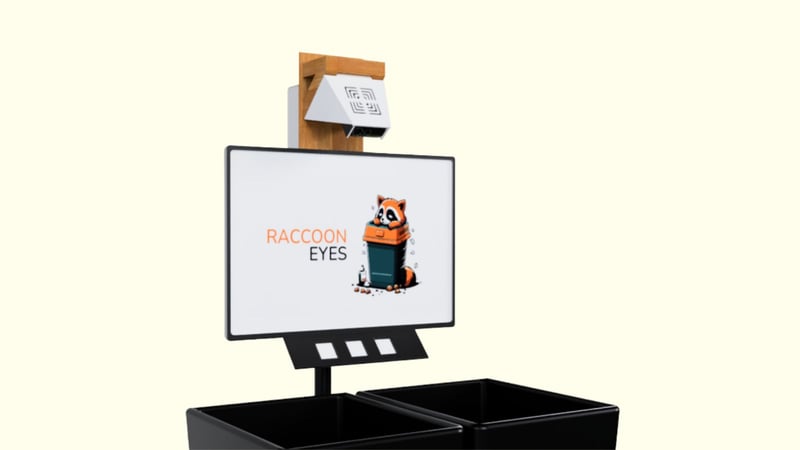
Here’s how Raccoon Eyes works:
-
The device, which is installed behind a trash bin, scans the amount of unwanted food. Koh explains, “For example, if someone tosses food from their plate, our system can detect that it contained 0.3 lbs of pizza and 0.2 lbs of chicken.”
-
The dining hall patron can provide quick feedback explaining why they are discarding the food. They can either speak directly into the device, saying something like “The pizza was bad today,” or they can simply choose from three displayed options: bad food, good food, or took too much.
-
Raccoon Eyes then provides chefs and dining service managers with +30 visualizations and charts that include wasted food items, peak waste generation times, and sentiment analysis from consumer feedback. “These analytics empower them to take action and optimize their dining operations,” said Koh.
-
By interacting with the device, consumers are made more aware of their choices, and may adjust their behavior in the future to help reduce waste.
-
Chefs and dining hall managers receive real-time user feedback and food waste data to help them better understand consumer eating habits and preferences. The detailed information provided by the device offers the opportunity to improve sustainability, refine recipes, manage portion sizes, reduce food costs, and ultimately elevate the dining experience.
Implementing Raccoon Eyes to Prevent Food Waste on Campus
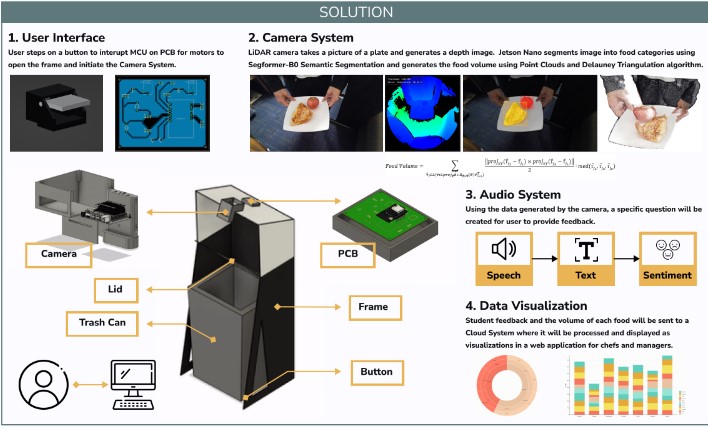
Since they first began building this system in the Fall of 2022 as a capstone project, the team behind Raccoon Eyes has seen steady growth and success. “Through pilot programs at Georgia Tech, we have increased student feedback from less than 1% to 7%, while also fostering greater awareness of food waste on a daily basis,” Koh says.
The team is also taking new steps to implement Raccoon Eyes across campus. Koh explains, “We are finishing a contract with Georgia Tech that incorporates Raccoon Eyes in all the dining locations on campus; North Avenue, West Village and Brittain Dining Halls to help with food waste. We currently have eight machines and are looking to grow into other nearby universities with the ultimate goal of eventually implementing this solution in every cafeteria and dining hall in the nation.”
Special Recognitions for Raccoon Eyes Food Waste Prevention
This aspiration to eliminate and understand food waste has earned the Raccoon Eyes team well-deserved recognition:
-
Won Best Overall for Senior Design Expo Fall 2022
-
Won Second Place at the Sustainable-X Entrepreneurship Program, a partnership between CREATE-X and the Ray C. Anderson Center for Sustainable Business
-
Finalist for Georgia Tech’s 2023 InVenture Prize
The Future of Raccoon Eyes in Preventing Food Waste
The next step for the Raccoon Eyes team is participating in Georgia Tech’s CREATE-X Startup Launch, a 12-week summer program where students receive mentorship from experienced entrepreneurs and can turn their capstone or other projects into profitable start-ups.
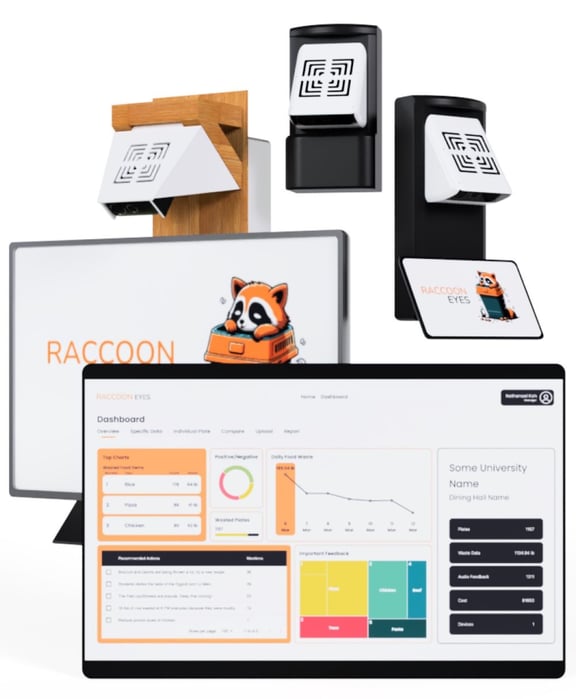
In the meantime, the Raccoon Eyes team is continuing to refine and improve their device. “We have transformed our trash can extension device, giving it a new and polished look with a bigger screen that allows for more exciting interactions with students and staff,” said Koh. The students hope these updates and advancements will further improve the dining experience and food waste issues by giving staff and consumers more detailed and efficient data.
What else does the future hold for Raccoon Eyes? The team is eager to continue growing and plans to continue doing just that. “The next step of the business is to expand our solution to other universities’ dining halls, company cafeterias, and potentially restaurants and other food locations,” says Koh.
Stay Up to Date on Climate Solutions in Georgia
Do you want to stay on top of the latest innovations and developments around scaling climate solutions in our state? Subscribe now to the Georgia Climate Digest and receive updates sent directly to your inbox two times each month.


